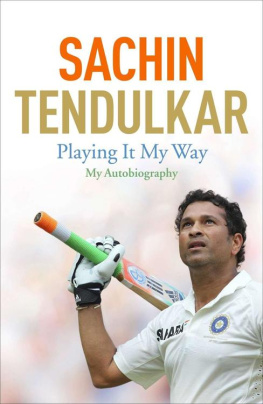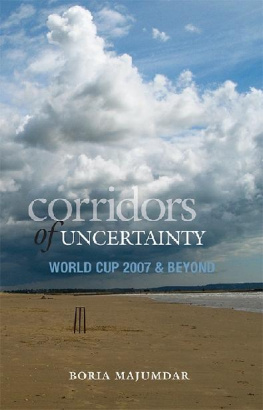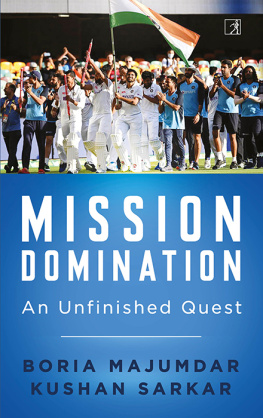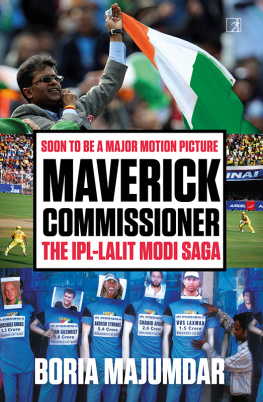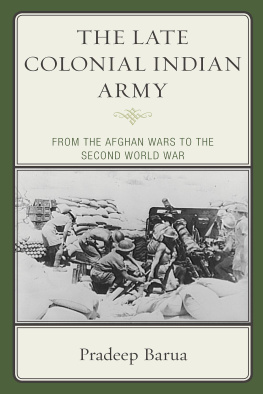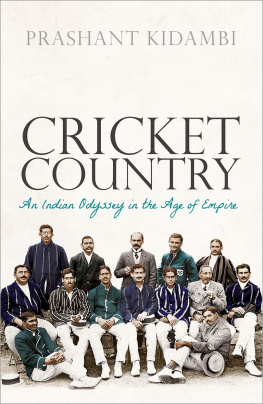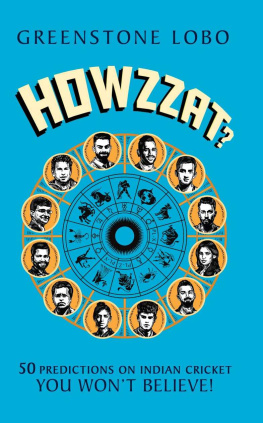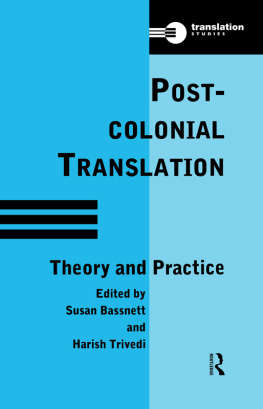Cricket in Colonial India, 17801947
This is an authoritative social history of Indian cricket between 1780 and 1947. It considers cricket as a derivative sport, creatively adapted to suit modern Indian socio-cultural needs, fulfil political imperatives and satisfy economic aspirations. Boria Majumdar argues that cricket was a means to cross class barriers with a healthy following even outside the aristocracy and upper middle classes well over a century ago. Indeed, in some ways, the democratization of the sport anticipated the democratization of the Indian polity itself.
Majumdar reveals the appropriation, assimilation and subversion of cricketing ideals in colonial India for nationalist ends. He exposes a sport rooted in the contingencies of the colonial context of nineteenth- and twentieth-century India. For Indians, cricket, to put it simply, is much more than a game.
This study describes how the genealogy of their intense engagement with cricket stretches back over a century. It is concerned not only with the game but also with the end of cricket as a mere sport, with Indian crickets commercial revolution in the 1930s, with ideals and idealism and their relative unimportance, with the decline of morality for reasons of realpolitik, and with the rejection, once and for all, of the view that sport and politics do not mix.
This book was previously published as a special issue of The International Journal of the History of Sport.
Boria Majumdar, a Rhodes scholar, is research fellow at La Trobe University in Melbourne. He is Executive Editor of the Routledge journals Sport in Society and Soccer and Society and Joint General Editor of the Routledge Series, Sport in the Global Society. He is also visiting lecturer at the University of Chicago and a fellow of the International Olympic Museum at Lausanne, Switzerland. A well-known media figure on television, he has also written extensively for the Times of India, Outlook, Wisden and Anandabazar Patrika.
Cricket in Colonial India,
17801947
Boria Majumdar
First published 2008 by Routledge
2 Park Square, Milton Park, Abingdon, Oxon, OX14 4RN
Simultaneously published in the USA and Canada
by Routledge
711 Third Avenue, New York, NY 10017
Routledge is an imprint of the Taylor & Francis Group, an informa business
2008 Boria Majumdar
Typeset in Minion by KnowledgeWorks Global Limited, Chennai, India
All rights reserved. No part of this book may be reprinted or reproduced or utilised in any form or by any electronic, mechanical, or other means, now known or hereafter invented, including photocopying and recording, or in any information storage or retrieval system, without permission in writing from the publishers.
British Library Cataloguing in Publication Data
A catalogue record for this book is available from the British Library
ISBN 10: 0-415-40014-7 (hbk)
ISBN 13: 978-0-415-40014-5 (hbk)
CONTENTS
SPORT IN THE GLOBAL SOCIETY was launched in the late nineties. It now has over one hundred volumes. Until recently an odd myopia characterised academia with regard to sport. The global groves of academe remained essentially Cartesian in inclination. They favoured a mind/body dichotomy: thus the study of ideas was acceptable; the study of sport was not. All that has now changed. Sport is now incorporated, intelligently, within debate about inter alia ideologies, power, stratification, mobility and inequality. The reason is simple. In the modern world sport is everywhere: it is as ubiquitous as war. E.J. Hobsbawm, the Marxist historian, once called it the one of the most significant of the new manifestations of late nineteenth century Europe. Today it is one of the most significant manifestations of the twenty-first century world. Such is its power, politically, culturally, economically, spiritually and aesthetically, that sport beckons the academic more persuasively than ever to borrow, and refocus, an expression of the radical historian Peter Gay to explore its familiar terrain and to wrest new interpretations from its inexhaustible materials. As a subject for inquiry, it is replete, as he remarked of history, with profound questions unanswered and for that matter questions unasked.
Sport seduces the teeming global village; it is the new opiate of the masses; it is one of the great modern experiences; its attraction astonishes only the recluse; its appeal spans the globe. Without exaggeration, sport is a mirror in which nations, communities, men and women now see themselves. That reflection is sometimes bright, sometimes dark, sometimes distorted, sometimes magnified. This metaphorical mirror is a source of mass exhilaration and depression, security and insecurity, pride and humiliation, bonding and alienation. Sport, for many, has replaced religion as a source of emotional catharsis and spiritual passion, and for many, since it is among the earliest of memorable childhood experiences, it infiltrates memory, shapes enthusiasms, serves fantasies. To co-opt Gay again: it blends memory and desire.
Sport, in addition, can be a lens through which to scrutinise major themes in the political and social sciences: democracy and despotism and the great associated movements of socialism, fascism, communism and capitalism as well as political cohesion and confrontation, social reform and social stability.
The story of modern sport is the story of the modern worldin microcosm; a modern global tapestry permanently being woven. Furthermore, nationalist and imperialist, philosopher and politician, radical and conservative have all sought in sport a manifestation of national identity, status and superiority.
Finally, for countless millions sport is the personal pursuit of ambition, assertion, well-being and enjoyment.
For all the above reasons, sport demands the attention of the academic. Sport in the Global Society is a response.
J.A. Mangan
Boria Majumdar
Series Editors
Sport in the Global Society
Sport in the Global Society
General Editor: J.A. Mangan and Boria Majumdar
Cricket in Colonial India, 17801947
Sport in the Global Society
General Editor: J.A. Mangan and Boria Majumdar
As Robert Hands in The Times recently observed the growth of sports studies in recent years has been considerable. This unique series with over one hundred volumes in the last decade has played its part. Politically, culturally, emotionally and aesthetically, sport is a major force in the modern world. Its impact will grow as the world embraces ever more tightly the contemporary secular trinity: the English language, technology and sport. Sport in the Global Society will continue to record sports phenomenal progress across the world stage.
Africa, Football and FIFA
Politics, Colonialism and Resistance
Paul Darby
Amateurism in British Sport
It Matters Not Who Won or Lost
Edited by Dilwyn Porter and
Stephen Wagg
Amateurism in Sport
An Analysis and Defence
Lincoln Allison
Americas Game(s)
A Critical Anthropology of Sport
Edited by Benjamin Eastman,
Sean Brown and Michael Ralph
American Sports
An Evolutionary Approach
Edited by Alan Klein
A Social History of Indian Football
Striving to Score
Kausik Bandyopadhya and



